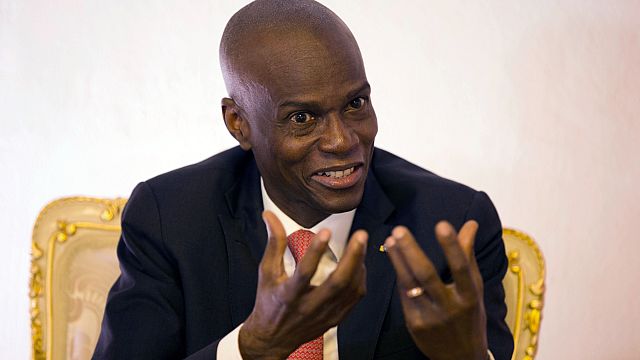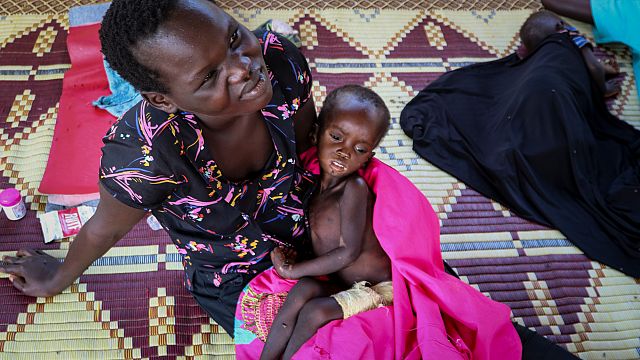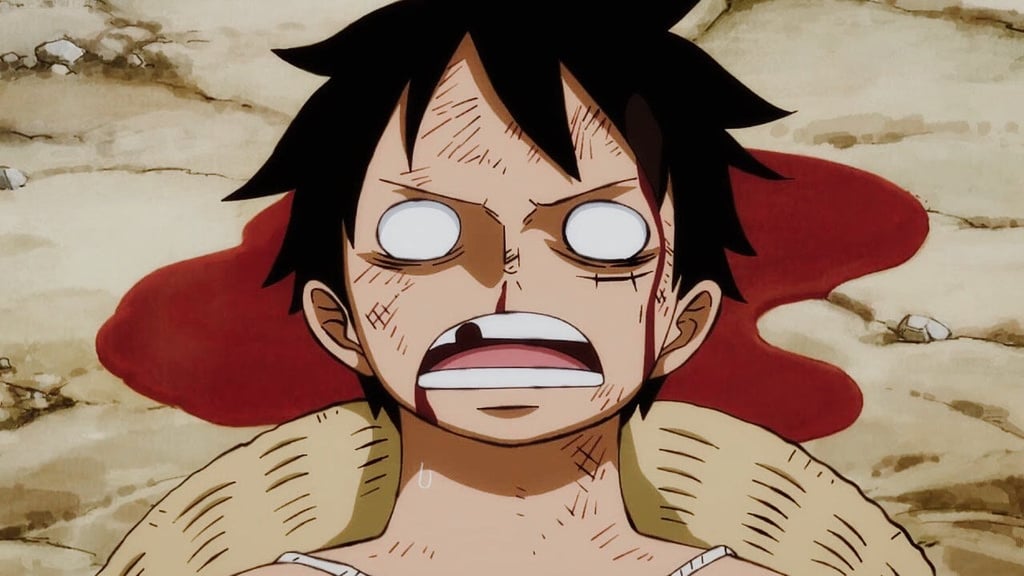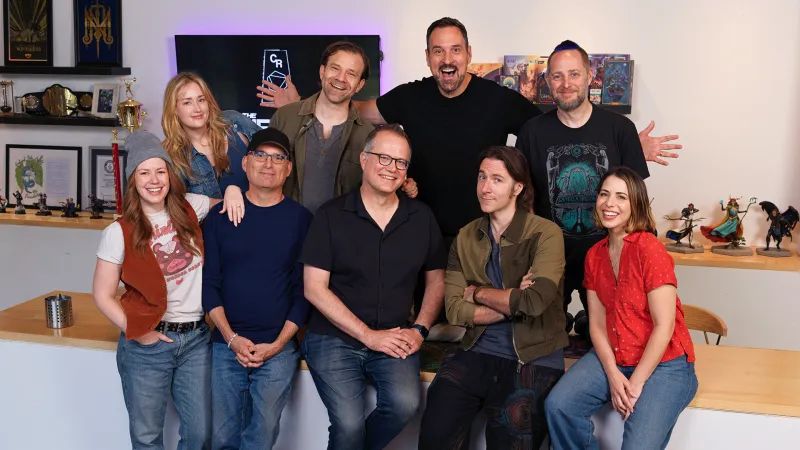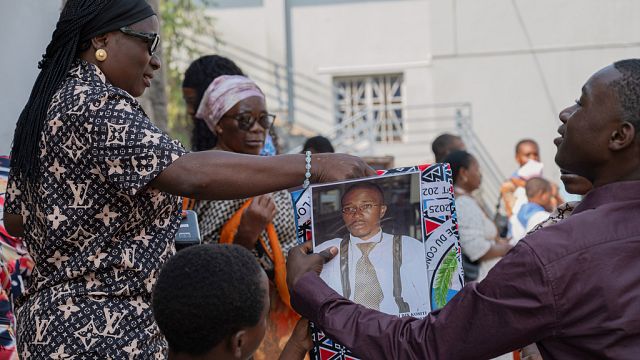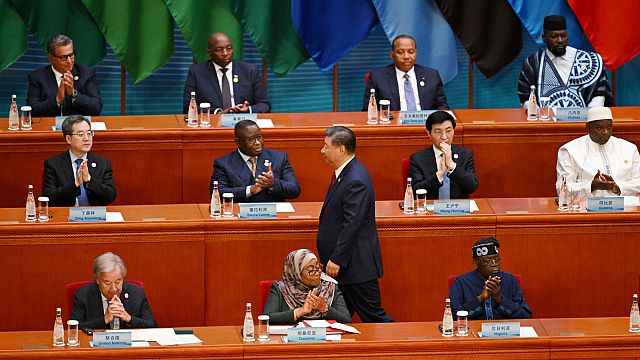South Africa Built a Medical Research Powerhouse. Trump Cuts Have Demolished It.

In Cape Town, South Africa, one of the world’s foremost H.I.V. researchers has been spending a chunk of each day gently telling longtime workers and young doctoral students that the money is gone and so are their jobs. When the calls are done, she weeps in her empty office.
In the heart of Johannesburg, the lobby of a building that once housed hundreds of scientists is empty of people but choked with discarded office furniture and heaps of files hastily gathered from shuttered research sites.
South Africa has for decades been a medical research powerhouse, yet its stature has been little known to people outside the field. South Africa’s scientists have been responsible for key breakthroughs against major global killers, including heart disease, H.I.V. and respiratory viruses such as Covid-19. They have worked closely with American researchers and have been awarded more research funding from the United States than any other country has received.
But a swift series of executive orders and budget cuts from the Trump administration have, in a matter of months, demolished this research ecosystem.
There are grim ramifications for human health worldwide, and also for pharmaceutical companies, including American giants such as Pfizer, Merck, Abbott and Gilead Sciences, which rely heavily on South Africa’s research complex when they develop and test new drugs, vaccines and treatments.
“South Africa is the beacon,” said Dr. Harold Varmus, a professor of medicine at Cornell University who was awarded the Nobel Prize in medicine for his work on cancer biology and who was a director of the National Institutes of Health.
“We have many important collaborative works going on there,” he continued, adding: “To cut them off, I just I don’t understand it. It’s self-destructive behavior.”
Dozens of critical medical trials that were test treatments and protections against gonorrhea, diabetes, meningitis, cervical cancer and a host of other afflictions have shut down as a result of the cuts. The abrupt terminations have left researchers scrambling to find ways to provide ongoing monitoring and care for the people, including small children, who had been given experimental vaccines or drugs.
“The implications of this are huge,” said Dr. Ntobeko Ntusi, chief executive of the South African Medical Research Council. “One of the biggest success stories to come out of South Africa in the last three decades, largely aided through the generosity of American people, has been the development of this high-caliber cadre of scientists who’ve led scholarship that has been seminal not just for South Africa but for the whole world.”

Neither the State Department nor the Department of Health and Human Services would comment on the funding cuts.
The motivation for the cuts most likely results from a combination of forces often cited by administration officials: an aversion to sending American dollars overseas, concerns about waste and a particular vendetta against the country, in which President Trump has said, inaccurately, that there is a “genocide” of white people.
Overall, hundreds of millions of dollars in funding for medical research in South Africa has been cut. That includes at least $260 million from the N.I.H. and hundreds of millions more from other agencies including the Centers for Disease Control and Prevention and the United States Agency for International Development.
“All U.S. federal funding flows have stopped,” Dr. Ntusi said.
Pharmaceutical companies have relied on the country for clinical trials for decades. Some are now rethinking their relationship with South Africa, according to people familiar with the discussions.
Dr. Shabir Madhi, the dean of the Faculty of Health Sciences at the University of the Witwatersrand in Johannesburg, has worked with drug companies on many new vaccines, including immunizations for Covid and diarrheal disease, and has been preparing for the next phase of a trial of a pneumococcal vaccine. But now, he said, the private contractors running the trial for the drugmaker are “pushing back against my own research unit being included in a vaccine study which we’re probably in the best position in the world to undertake.”
Not all medical research in the country has relied on U.S. funding. But even projects with other funding sources have been disrupted. In some cases, the remaining funds are insufficient to keep laboratories running or pay the salaries of scientists, who typically work on multiple projects at once.
The full effect of the damage will become clear only in the coming months, said Dr. Tom Scriba, a professor of immunology at the University of Cape Town and deputy director of the world’s top tuberculosis research centers.
How South Africa Became a Powerhouse
The first-ever heart transplant was performed in Cape Town in 1967. The CT scanner was invented in South Africa. So were many now-common surgical techniques. Vaccines and drugs that are widely used in the United States — including treatments for high blood pressure and the immunization for R.S.V. — came out of South African research.
Huge clinical trials in South Africa were key to the speed with which Covid vaccines — of all kinds — were developed. Then, it was South African researchers who sounded the alarm that the coronavirus had mutated to evade the original vaccines, who provided critical information on the Beta variant and who later identified and genetically sequenced the Omicron variant, providing the information that Pfizer and Moderna used to update their vaccines.
South Africa’s research might is a legacy of its harsh history. Apartheid-era governments neglected the health of millions of Black people but invested in educational institutions and medical innovation for the white population. In the decades since the country transitioned to a multiracial democracy, those educational institutions have been open to everyone. But efforts to extend basic health care have been slow, which means the country still has a high rate of disease. That, in turn, makes for a grimly efficient place to conduct research.
South Africa has the world’s largest population of people living with H.I.V., one of the largest of people with tuberculosis, and high numbers of people with heart disease and diabetes. So it is possible, for example, to recruit 1,000 participants for a clinical trial at a single site in Soweto in a matter of weeks — a process that might take months and a dozen sites in the United States.
When Dr. Madhi oversaw a large final-stage clinical trial of the Novavax vaccine against R.S.V. for pregnant women, six sites in South Africa enrolled as many women as 81 other sites around the world. If drug companies did not have South African partners, Dr. Madhi said, it would push the cost of development so high that this vaccine and others would simply never be made.
Because the South African rand is a weaker currency — running about 20 to a U.S. dollar — running studies in South Africa costs a fraction of what it does in the United States.
South Africa’s researchers work out of world-class facilities that have benefited from significant investment from the United States government and philanthropies, such as the Gates Foundation, over the past 20 years.
South Africa also has a top-tier government medical regulator, which certifies trials to meet standards required by U.S. and European regulators. . “All our studies are set up from the beginning to have global impact,” said Dr. Helen Rees, the director of the Wits Reproductive Health and H.I.V. Institute, which has produced seminal work on vaccine-preventable illness, maternal health and H.I.V.
The final ingredient is relationships: Researchers have worked for decades in the communities where they run trials. People have seen the direct results of the science they volunteer to test — new, shorter treatments for tuberculosis, for example — and whole communities participate in information and consent processes for new trials. This has allowed researchers in South Africa to do work such as testing an H.I.V. vaccine on newborns, or drugs on pregnant women, that would be mired in both public unease and concerns about liability in the United States.
“This was American taxpayers’ money and we are incredibly grateful that’s how it was spent, but it wasn’t a gift or a charity,” said Dr. Lynn Morris, deputy vice chancellor of research and innovation at the University of the Witwatersrand. “These are competitive grants, and the data we produced benefited everyone.”
One of the Trump administration’s main arguments against foreign aid has been that the money is often used wastefully. South Africa is routinely criticized for government corruption by transparency watchdog groups.
However, N.I.H. and other research awards were subject to stringent financial accounting by U.S.-based auditors, and the few projects found to have misused funds over the past two decades were swiftly terminated.
What the Future May Hold
The U.S.-based pharmaceutical industry has not spoken out about the targeting of South Africa, and executives at several companies declined to be interviewed for this article.
“Publicly, they’re mute,” said Dr. Stavros Nicolaou, who oversees international business for Aspen Pharmacare, a South African drugmaker. “Privately, they’re very vocal.” They are not going to risk political capital by advocating for the country, he said.
In an interview, Dr. Jared Baeten, a senior vice president at Gilead Sciences who focuses on therapeutics for viruses, did not discuss the cuts but said that the role of South African research had been essential.
“There’s so much scientific data that builds on research from South Africa,” he said. “We have H.I.V. prevention for this country and for the world because of the infrastructure, the scientific ability and the collaboration with South Africa.”
Julie Marie Cunningham, a spokeswoman for the drugmaker Merck, said that the company would move ahead with testing a new oral H.I.V. prevention drug and other products in South Africa. “We continue to consider South Africa an important location for clinical trial sites.”
But some South African scientists can imagine a near future when it is impossible for drug companies to operate there.
“My bigger concern now is the possibility of South Africa being sanctioned as a country,” Dr. Madhi said.
The concept once seemed far-fetched, but it looks less implausible after Mr. Trump’s confrontational meeting with South Africa’s president, Cyril Ramaphosa, at the White House last month. Sanctions would not only end multinational pharmaceutical work in the country but also restrict the ability of other organizations, such as the Gates Foundation, to operate there as well.
The foundation, for now, is the first place researchers are turning tin the hope of finding funding that might allow some work to continue.
The foundation has already stepped in with money to try to preserve some studies already in progress.
“Cutting funding now will limit further scientific breakthroughs and progress in health and ultimately put millions of lives at risk, including here in the United States,” said Trevor Mundel, president of global health at the foundation.
Wellcome Trust, a philanthropic organization in Britain, is looking at ways it can try to preserve some research, and scientists are submitting proposals to the European Union and individual countries in Europe.
Funding bureaucracy moves slowly, and it will be at least a year before any of these new proposals could yield money that would allow work to resume.
South Africa’s universities and the medical research council have made emergency appeals to the country’s government. The Gates Foundation and other philanthropies may match some of what the government contributes.
But that would be a fraction of what’s been lost. South Africa’s financial resources were already badly strained by corruption, decaying infrastructure, a faltering economy and a dysfunctional coalition government.
“I don’t think it’s within the means of the country to be able to bridge the gap,” Dr. Madhi said.
The council will use those funds to try to care for people who were in clinical trials and preserve studies that were providing critical data for doctoral students who were partway through their degrees.
“We are at risk of missing out on a generation of scientists — because people will leave,” Dr. Scriba said.
At the Centre for the AIDS Program of Research in Durban, which was created by the N.I.H. in 2002 and which has now lost 50 percent of its budget,senior scientists are trying to comfort their junior colleagues by drawing on lessons they learned as young doctors at the height of the fight against apartheid.
“During times of adversity, you can also be very resourceful,” said Dr. Qurraisha Abdool Karim, the scientific director at the center. “So we keep thinking optimistically, what is it we can do? We know it’s going to be painful and we all have to suffer that. But in the longer term, how do we rise stronger?”
What's Your Reaction?
 Like
0
Like
0
 Dislike
0
Dislike
0
 Love
0
Love
0
 Funny
0
Funny
0
 Angry
0
Angry
0
 Sad
0
Sad
0
 Wow
0
Wow
0



